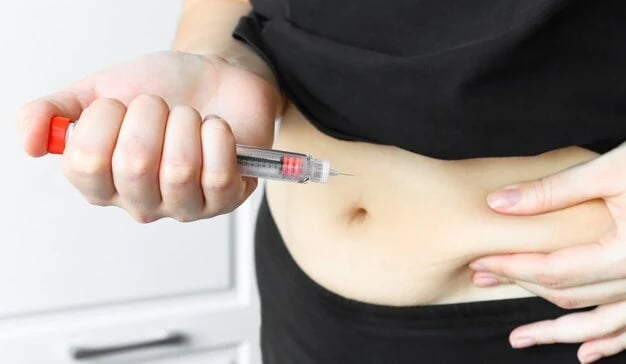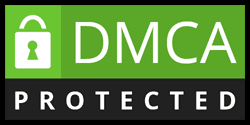Do lipotropic injections need to be refrigerated? This question often arises among individuals who are considering or currently utilizing these popular injections for weight loss and fat metabolism enhancement. The storage requirements of medications, particularly injectable ones, can significantly influence their efficacy and safety. Understanding how to properly store lipotropic injections is crucial for anyone looking to maximize the benefits while ensuring their health and well-being.
Table of Contents
ToggleIntroduction to Lipotropic Injections

Lipotropic injections have gained popularity in recent years as a tool for weight management and metabolic support. They contain compounds that promote the breakdown of fat in the liver and aid in the removal of toxins from the body. For those venturing into this method of weight loss, it’s essential to have a solid understanding of what lipotropic injections are and how they function.
Definition and Purpose of Lipotropic Injections
Lipotropic injections are specialized treatments designed to enhance fat metabolism in the body. The term “lipotropic” refers to substances that help catalyze the breakdown of fat during metabolism. These injections typically contain a combination of vitamins, minerals, and amino acids, which collectively work to stimulate fat oxidation and facilitate weight loss.
The primary purpose of lipotropic injections is to assist individuals in shedding excess body fat while providing energy and supporting overall health. Many people turn to these injections when traditional weight loss methods, such as diet and exercise alone, aren’t yielding the desired results. In addition to weight loss, users often report improved mood, increased energy levels, and enhanced mental clarity.
Common Ingredients in Lipotropic Injections
While the specific formulation of lipotropic injections can vary based on the provider, several key ingredients are frequently included in these mixtures.
Common components include:
- Methionine: An essential amino acid that aids in the breakdown of fats and detoxification processes.
- Inositol: A carbohydrate that plays a role in fat metabolism and insulin sensitivity.
- Choline: A nutrient that supports liver function and helps prevent fat accumulation.
- Vitamin B12: Vital for energy production and red blood cell formation, this vitamin also contributes to overall metabolic health.
These ingredients, when combined, create a powerful concoction that targets fat accumulation and enhances the body’s ability to use stored fat for energy.
Understanding Storage Requirements Lipotropic Injections

Storage requirements for medications, especially injectables like lipotropic injections, are critical to maintaining their efficacy and safety. Proper storage ensures that the active ingredients remain potent and effective during their intended shelf life.
Importance of Proper Storage for Medications
Proper storage of medications cannot be overstated. Incorrect storage conditions can lead to decreased potency, altered chemical composition, and potentially harmful side effects. For injectable medications, maintaining an appropriate temperature is especially vital, as temperature fluctuations can compromise the integrity of the solution.
Moreover, medications that degrade due to improper storage can pose serious health risks to individuals who administer them. In the case of lipotropic injections, compromised solutions may not only fail to deliver expected results but could also introduce harmful substances into the body.
General Guidelines for Medication Refrigeration
The general consensus regarding medication storage is that most injectable medications should be kept at stable temperatures, usually between two to eight degrees Celsius. However, some medications might have different requirements based on their formulation.
For example, while certain vaccines and biologics require refrigeration, others may be stored at room temperature. It is always essential to read the packaging or consult with a healthcare professional to determine specific storage needs.
Additionally, ensuring that medications are protected from light, humidity, and extreme temperatures is equally important.
Refrigeration Needs for Lipotropic Injections

When it comes to lipotropic injections, one must consider whether refrigeration is necessary to maintain their effectiveness. This decision is influenced by various factors, such as ingredient composition and manufacturer guidelines.
Do Lipotropic Injections Require Refrigeration?
The necessity for refrigeration of lipotropic injections largely depends on the individual formulation and the components used. Many practitioners recommend storing these injections in the refrigerator to ensure their potency, especially when they contain heat-sensitive ingredients like vitamins.
However, some commercially available lipotropic injections may have stabilizers or preservatives that allow them to be stored at room temperature without significant degradation. Therefore, it’s crucial for users to verify the storage instructions provided by the distributor or pharmacy.
Factors Influencing Refrigeration Needs
Several factors can influence whether lipotropic injections should be refrigerated:
- Composition of the Injection: As previously mentioned, the specific ingredients in the injection play a vital role. For instance, injections containing B vitamins may benefit from colder storage.
- Duration of Use: If a user plans to utilize the injections over an extended period, refrigerating them may be advisable to prolong their shelf life.
- Environmental Conditions: External temperatures and humidity can impact the condition of the injection. In warmer climates, refrigeration becomes more critical to prevent degradation.
Understanding these influencing factors can help users make informed decisions about the proper storage of their lipotropic injections.
Consequences of Improper Lipotropic Injections Storage

Failing to store lipotropic injections correctly can lead to several adverse outcomes, affecting both efficacy and safety. Users must understand these consequences to prioritize proper storage practices.
Potential Risks of Not Refrigerating Lipotropic Injections
One major risk associated with inadequate storage of lipotropic injections is the potential for microbial growth. When these injections are left unrefrigerated, especially in warm environments, there’s an increased likelihood of contamination.
Additionally, degradation of the active ingredients can occur, rendering the injections ineffective. Not only does this waste money, but it can also lead to disappointment for individuals hoping to achieve their weight loss goals.
Effects on Efficacy and Potency
As the active ingredients degrade, users may find that the injections no longer produce the intended effects. This compromises the entire purpose of using lipotropic injections for weight loss and metabolic support.
Moreover, the emotional toll of failed expectations can dissuade individuals from pursuing other healthy lifestyle changes or alternative treatment options. Thus, the importance of adhering to recommended storage conditions cannot be understated.
Best Practices for Storing Lipotropic Injections

To ensure the longevity and effectiveness of lipotropic injections, users must adopt best practices for storage. These measures will safeguard against degradation and preserve the intended benefits of the treatment.
Recommended Temperature Range for Storage
Most lipotropic injections should ideally be stored in a cool environment, generally between two to eight degrees Celsius. Maintaining this temperature prevents the breakdown of sensitive ingredients and reduces the risk of microbial growth.
It’s advisable to keep the injections in their original packaging to protect them from light and moisture. Additionally, avoiding opening the container unnecessarily helps maintain a stable internal environment.
Where to Store Lipotropic Injections: Home, Clinic, or Travel
When determining where to store lipotropic injections, users must consider their individual circumstances. At home, a dedicated fridge or a designated section of the main refrigerator is ideal.
If storing at a clinic, medical professionals are trained to handle proper storage protocols. When traveling, using a cooler with ice packs can help maintain the required temperature.
Regardless of the location, prioritizing adherence to proper storage guidelines is essential.
Signs of Degradation in Lipotropic Injections

Identifying signs of degradation in lipotropic injections is crucial for ensuring safety and efficacy. Users should familiarize themselves with these visual indicators to avoid administering compromised products.
Visual Indicators of Compromised Injections
Changes in color, consistency, or clarity can signal that a lipotropic injection has degraded. If the solution appears cloudy or has visible particles, it should not be used.
Similarly, any discoloration from the original hue may indicate a change in chemical composition. Users should trust their instincts—if an injection looks off, it’s better to err on the side of caution.
What to Do If You Suspect Degradation
If there is any suspicion of degradation, do not administer the injection. Instead, consult with a healthcare provider or pharmacist for guidance. They can assess the situation and recommend next steps, which may involve disposing of the compromised product and obtaining a fresh supply.
Taking the time to ensure the quality of lipotropic injections protects one’s health and maximizes the potential benefits of the treatment.
Tips for Safe Handling and Administration
In addition to storage, safe handling and administration of lipotropic injections are critical for preventing complications and ensuring a positive experience with the treatment.
Guidelines for Preparing Lipotropic Injections
Prior to administering the injections, users should wash their hands thoroughly and prepare a clean workspace. Use sterile equipment, including needles and syringes, to minimize the risk of infection.
Always check the expiration date before use. If the injections are past their expiration, do not attempt to use them—even if they appear normal.
Importance of Hygiene and Sterility
Maintaining hygiene and sterility is paramount during the preparation and administration process. Always clean the injection site with alcohol swabs before injecting to reduce the risk of skin infections.
After administering the injection, dispose of needles and syringes in a designated sharps container to ensure safety. Following these guidelines promotes a safe and effective experience.
Professional Recommendations and Insights
Consulting healthcare professionals is essential for gaining valuable insights into the safe use and storage of lipotropic injections. Their expertise can provide users with the knowledge needed for successful treatment.
Expert Opinions on Refrigeration Necessity
Many healthcare providers advocate for the refrigeration of lipotropic injections. They emphasize that consistent temperature control helps maintain potency and effectiveness.
Pharmacy professionals often have firsthand experience with various formulations, making them a reliable source for accurate storage information. Users are encouraged to ask questions and seek clarification from their healthcare team.
Role of Pharmacies and Healthcare Providers
Pharmacies play a vital role in educating patients about the proper storage and handling of medications. Pharmacists can provide detailed information about specific products, including whether refrigeration is necessary.
Healthcare providers are also responsible for ensuring that patients understand the significance of proper storage. They should take the time to discuss these details during consultations.
Conclusion
In conclusion, the question of whether lipotropic injections need to be refrigerated is multifaceted. While many formulations benefit from cold storage, practitioners and users alike must evaluate the specific injection’s composition and storage requirements.
Proper storage is crucial for maintaining the efficacy and safety of lipotropic injections. By adhering to recommended guidelines, users can maximize the injection’s potential to support their weight loss journey and overall health.
Ultimately, seeking advice from healthcare professionals and pharmacies will offer valuable insights and recommendations tailored to individual circumstances. With informed practices, individuals can optimize their experience with lipotropic injections for lasting results.
Contact us via other platforms if you have any questions or requests that need to be answered quickly.
Tiktok: www.tiktok.com/@lunabeautyacademy6
Hotline: 034 254 0228
Email: lunabeautyacademy@gmail.com
Address: No. 29, Alley 140/1/2, Lane 140 Nguyen Xien, Thanh Xuan, Hanoi
Luna wishes you success and hopes you will have the best experiences at the academy. If you need advice or answers about anything, please leave your Contact Information With Us, the Luna team will contact you soon. Thank you for reading this article.


















